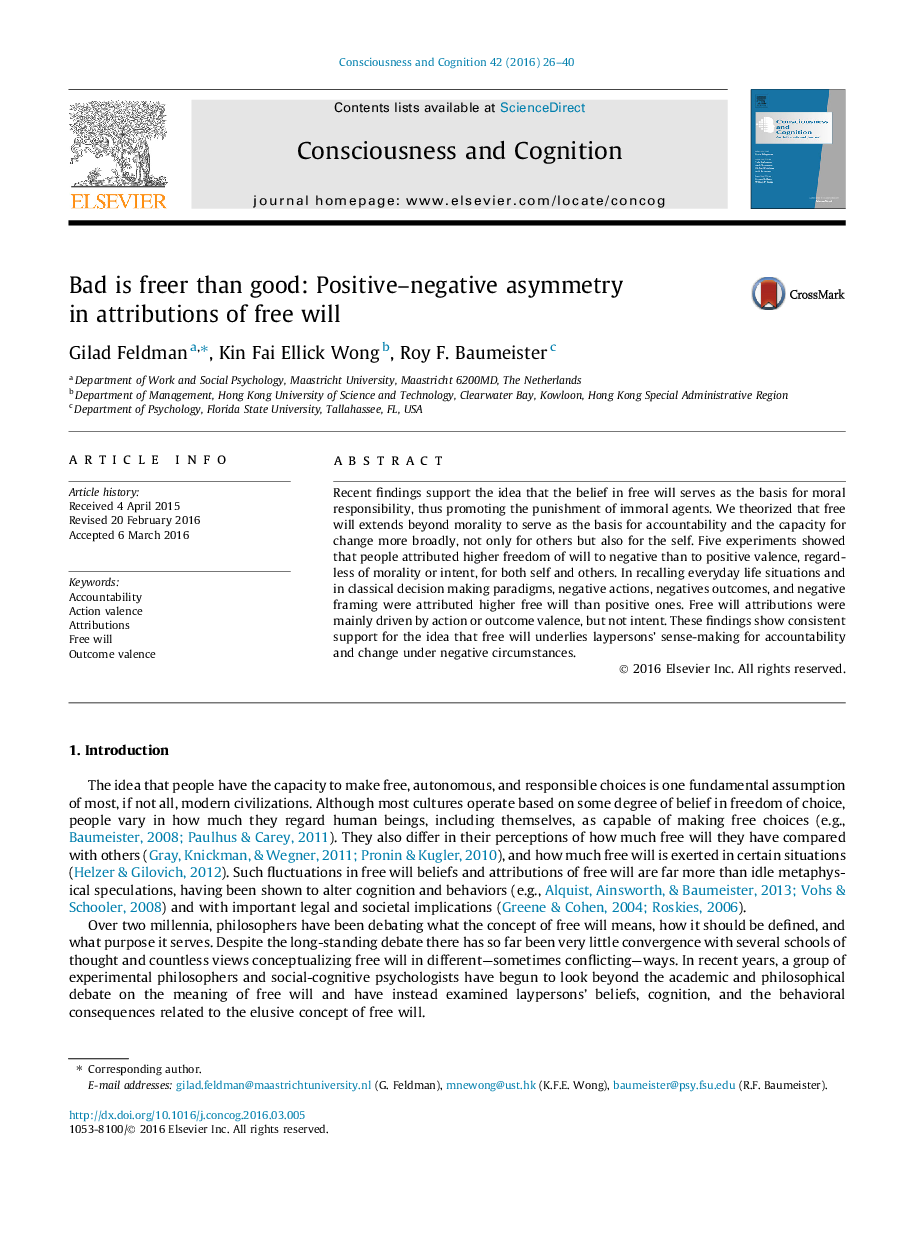| Article ID | Journal | Published Year | Pages | File Type |
|---|---|---|---|---|
| 7288425 | Consciousness and Cognition | 2016 | 15 Pages |
Abstract
Recent findings support the idea that the belief in free will serves as the basis for moral responsibility, thus promoting the punishment of immoral agents. We theorized that free will extends beyond morality to serve as the basis for accountability and the capacity for change more broadly, not only for others but also for the self. Five experiments showed that people attributed higher freedom of will to negative than to positive valence, regardless of morality or intent, for both self and others. In recalling everyday life situations and in classical decision making paradigms, negative actions, negatives outcomes, and negative framing were attributed higher free will than positive ones. Free will attributions were mainly driven by action or outcome valence, but not intent. These findings show consistent support for the idea that free will underlies laypersons' sense-making for accountability and change under negative circumstances.
Keywords
Related Topics
Life Sciences
Neuroscience
Cognitive Neuroscience
Authors
Gilad Feldman, Kin Fai Ellick Wong, Roy F. Baumeister,
